Invasive Mussels are more dangerous than they look.
Understanding the risks is the first step to making change.
Here’s what we stand to lose:
Clean drinking water
The Okanagan is home to some of the best water in the world. Zebra and quagga mussels put this at risk by promoting toxic algae that pollutes our drinking water. These mussels also clog drinking water intakes and distribution systems that cost millions of tax dollars just to have them removed and the pipes cleaned or retrofitted.
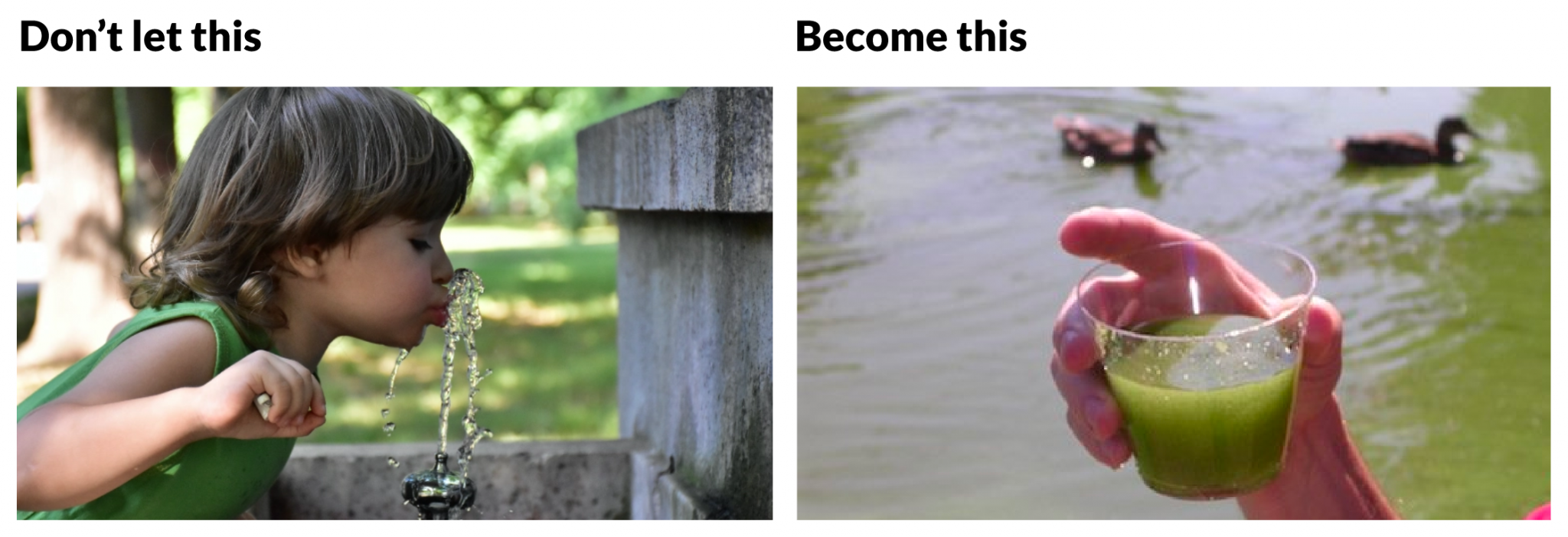
Water sample (right) — Photo courtesy of Grand State University
Vibrant beaches
Okanagan Valley is known for its beautiful lakes and beaches, and attracts visitors across the globe. But invasive zebra and quagga mussels ruin beaches, with razor-sharp shells that make it impossible to walk safely on the sand. And when these polluted mollusks die, they wash up along the shoreline, causing foul-smelling piles that significantly change our popular landscape that’s loved by so many.
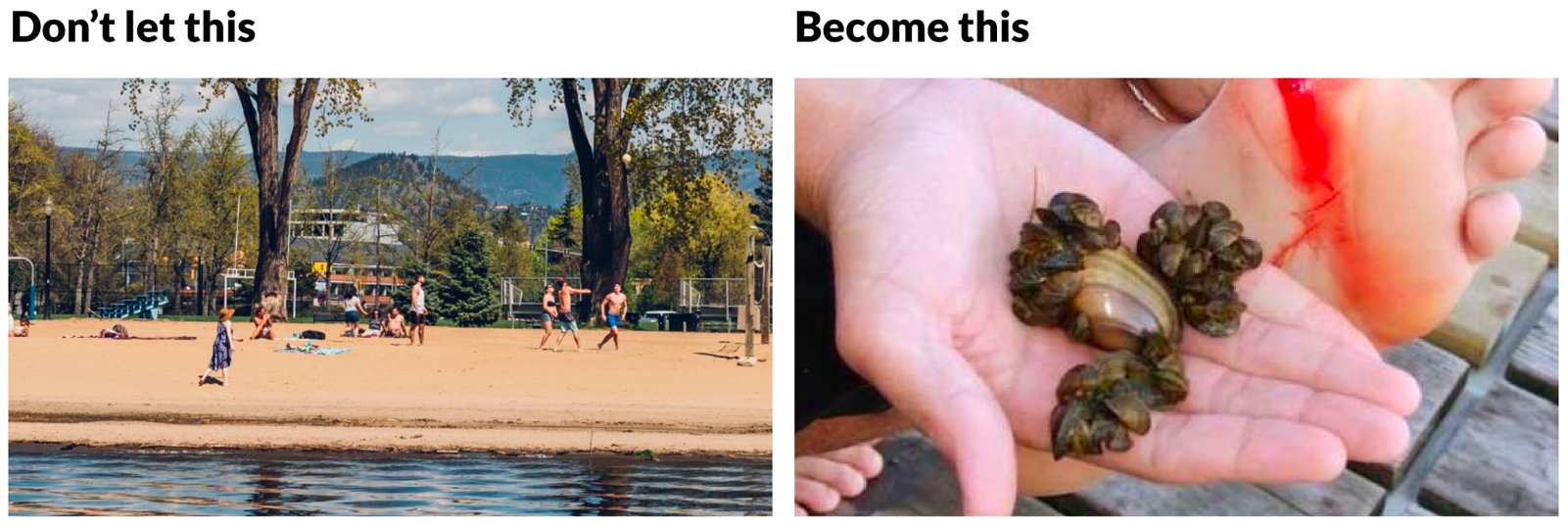
Mussel infestation (right) — Photo courtesy of Long Lake Association
Vital food sources
Sockeye, kokanee, steelhead, and rainbow trout have been an important food source to the Syilx/Okanagan people and generations of families who have made this region their home. Known as one of Western Canada’s greatest fishing destinations, visitors from around the world come in hope of getting their best catch yet. But our fish are more than a source of food – they also help maintain a healthy freshwater ecosystem and are important part of our economy. Zebra and quagga mussels devastate native salmon, depleting their food sources and contaminating water, ultimately, eliminating our sport fishery.

Photo courtesy of Rodney’s Reel Outdoors (left). Quagga mussels collected in fish trawl on Lake Michigan — Photo courtesy of NOAA (right).
Endangered ecosystems
The Okanagan region is valued for its high biodiversity and is home to some of the most endangered species in Canada. Among those at risk is our own native Rocky Mountain Ridged Mussel, a large mussel that can grow almost five inches in length. Zebra and quagga mussels outrival native species for food, causing a negative shift in the food web. In addition, they can create toxic algae blooms that contaminate lake water and kill fish and birds.

Western Painted Turtle (B.C. protected species) (left). Endangered Higgins Eye pearly mussel colonized with zebra mussels. — Photo courtesy of US Fish & Wildlife Services (right).
Property values
Many Okanagan residents first came to the region as who fell in love with its beauty and decided to make it their permanent home. Sadly, zebra and quagga mussels can significantly lower value properties, especially those located along the water. The estimated annual loss for just beachfront properties alone is an estimated $10 million and is mainly due to selling expenses and maintenance costs to clean shells around the beach.
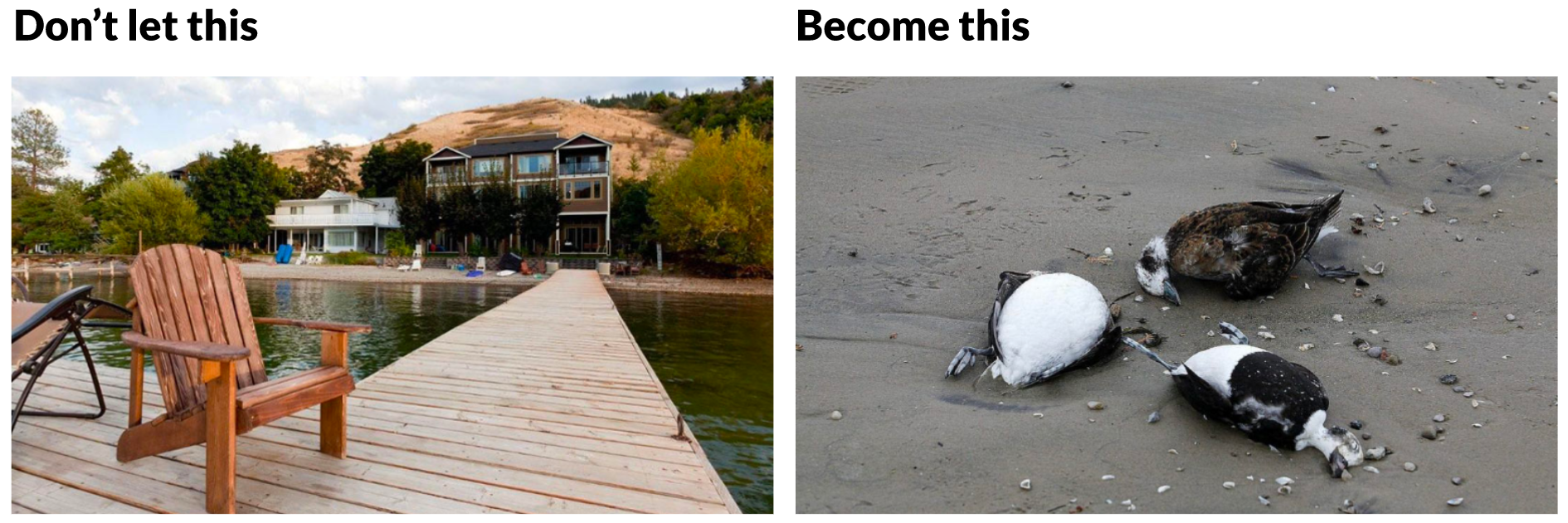
Photo courtesy of David O’Keefe (left). Poisoned birds washed up on shore, Georgian Bay Ontario — Photo courtesy of The Canadian Press (right).
Tourism
Okanagan’s beaches, lakes, wineries, and local hospitality attract a high number of tourists every year. But zebra and quagga mussels jeopardize the tourist industry by affecting a wide range of activities visitors come to enjoy.
For the boating industry, this translates to clogged and corroded motor cooling systems, foul hulls, and jamming centerboard wells under sailboats. The estimated cost to repair these damages, and the subsequent loss of boat and equipment sales, and increased maintenance at marinas and docks is $3.7 million every year. For individual boat owners, the annual cost to fix damages caused by zebra and quagga mussels is between $1,000 and $2,500.
These invasive mussels also pollute both private and public water intakes used to pump water to farms and drinking water treatment plants. This tremendously affects orchards, industry, hotels, restaurants, and other businesses. Without the ability to provide clean water, businesses won’t be able to effectively serve their customers.
Tourists wanting to lounge in the sun at one of our clean beaches, will instead find them littered with stinky sharp shells that make it impossible to walk safely without shoes. And anglers who are eager to catch our native salmon, will find themselves out of luck, thanks to the mussel’s ability to destroy this vital food source.
The impact to tourism employment is estimated at between $12 and $22 million each year.
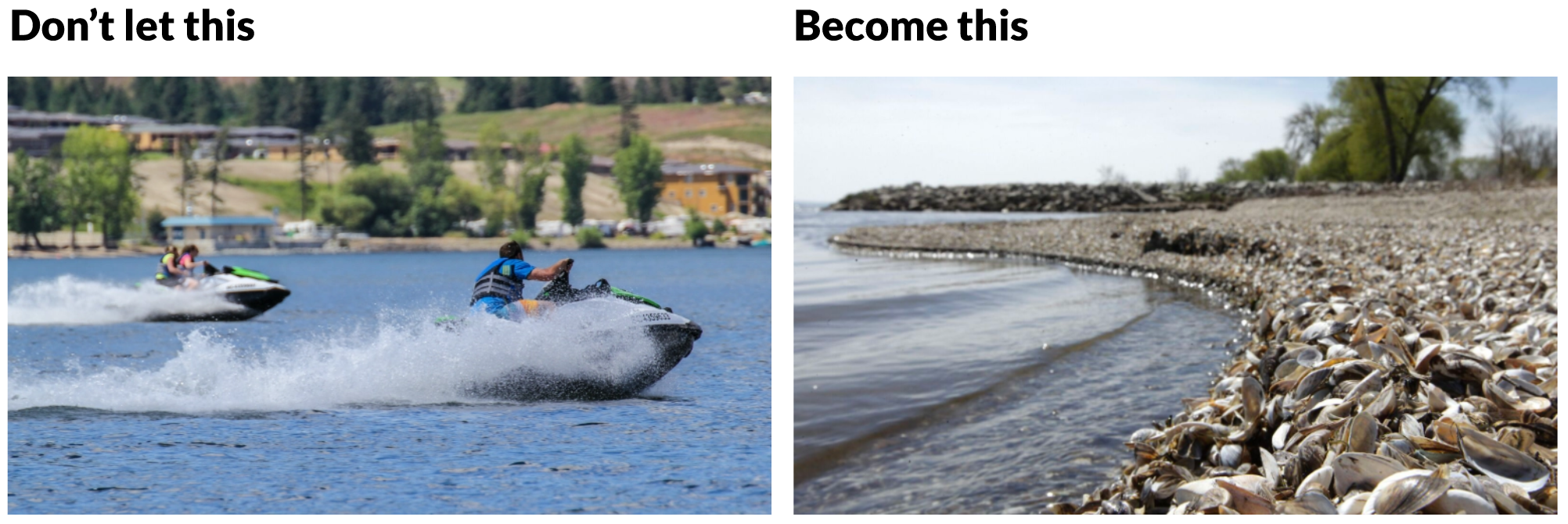
Zebra Mussels on lake Winnebago Beach (WI) — Photo courtesy of Mark Hoffman (right).
Overall economy
With its moderate climate and year-round recreational opportunities, the Okanagan has been a place where many people come to retire. And compared to larger cities like Vancouver or Calgary, the lower cost of homes makes it attractive for young families. But when zebra and quagga mussels invade waters and clog power-plants, public-water intakes and pipes, routine treatment for this is expensive, leading to increased utility bills and higher taxes for infrastructure upgrades.
Tourism will also be negatively impacted. Annual losses from the Okanagan fishery are estimated at over $16 million. With the loss of additional spin-off benefits such as boat rentals, hotels and restaurants, this figure could jump to nearly $42 million each year.
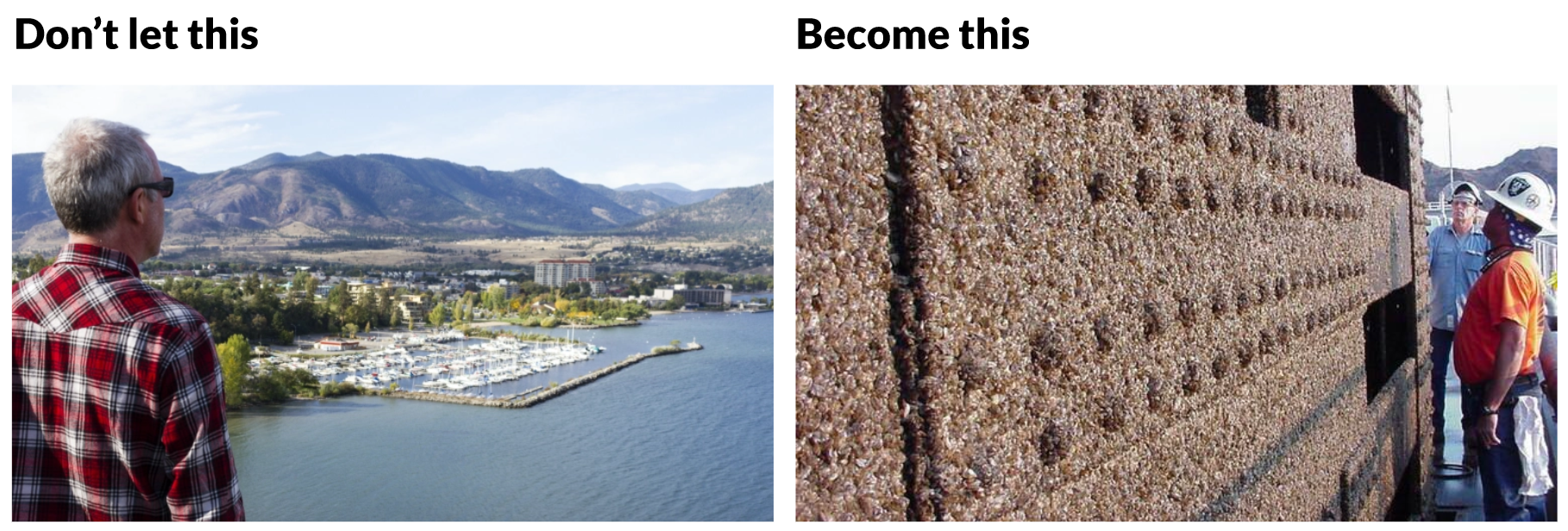
Quagga Mussels on Penstock Gate at Davis Dam — Photo courtesy of US Bureau of Reclamation (right).
Spread the message, not the mussel.
Find out how you can help get the word out about the dangers of zebra and quagga mussels.
